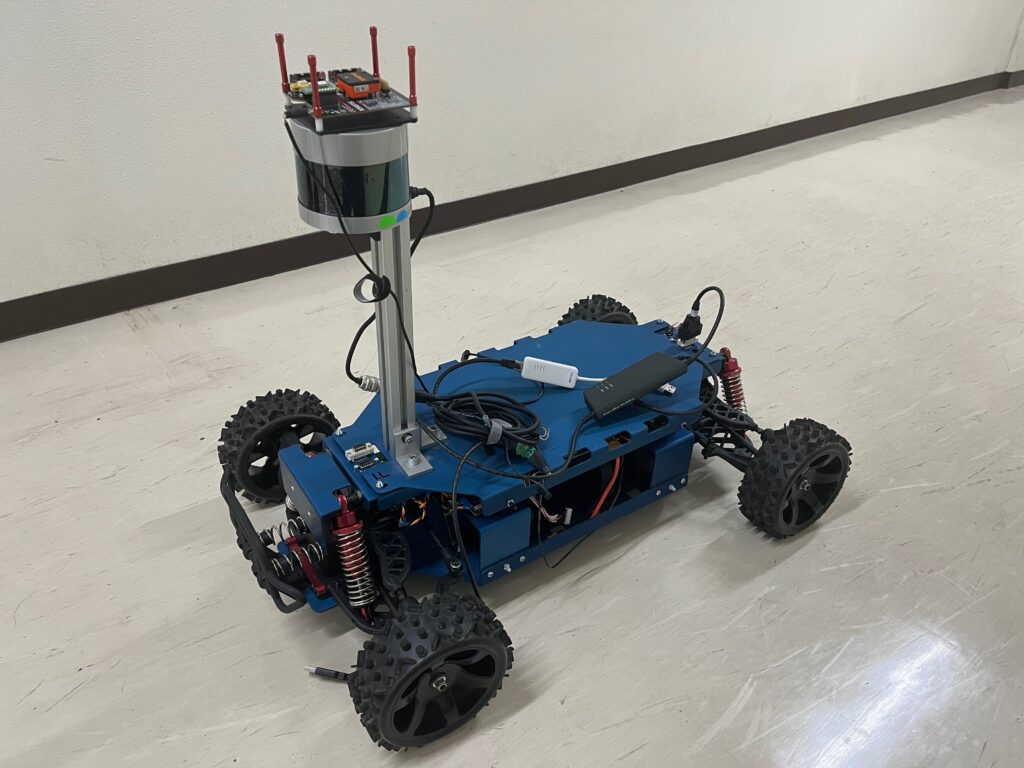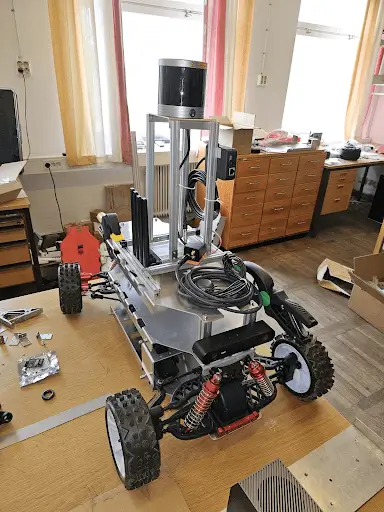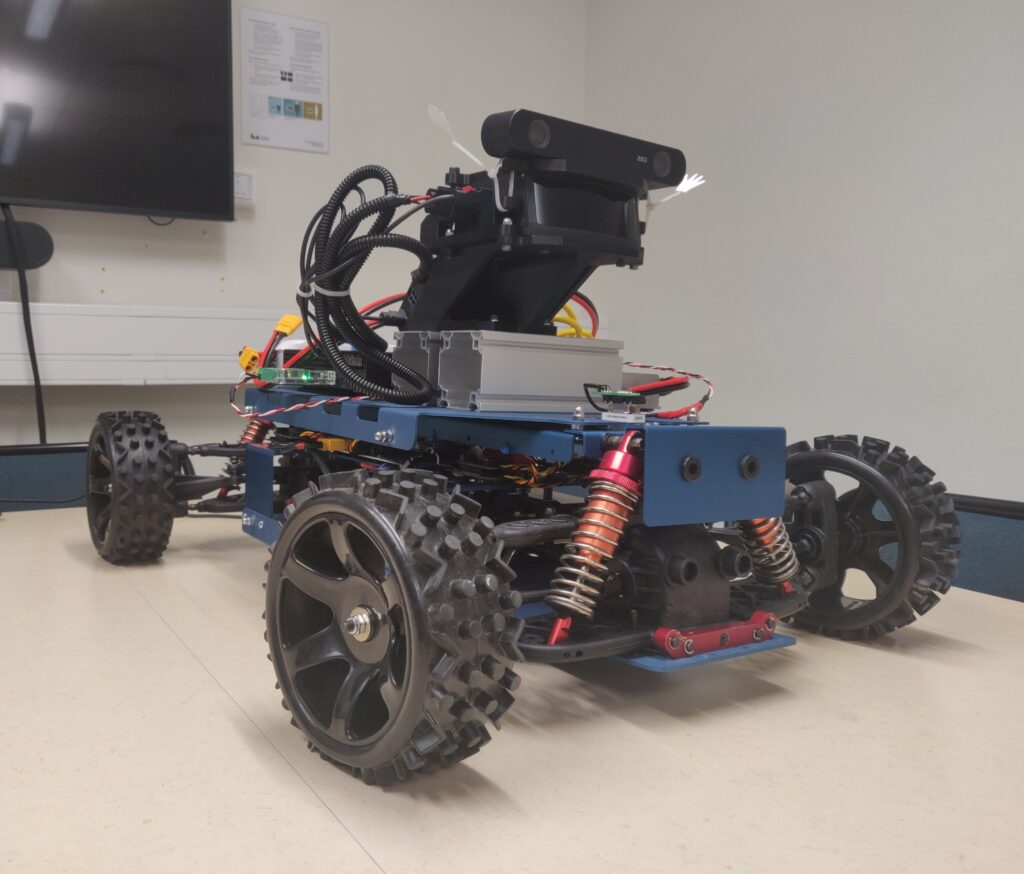Introducing the CanEduDev Demo Rover: A Powerhouse of Innovation and Flexibility!

The CanEduDev Demo Rover is a versatile platform tailored for complex technical applications, allowing users to fully explore the capabilities of the Controller Area Network (CAN). Its design supports a wide variety of sensor integrations and control configurations, providing flexibility to modify the Rover’s setup for specific use cases. Equipped with a high-precision steering servo and a customizable electronic control system, the Demo Rover enables seamless control of each movement and function.
At the core of the CanEduDev Demo Rover is a sophisticated CAN-based control system powered by the STM32F3 microcontroller. This setup includes three control modules featuring interfaces like PWM, SPI, I2C, and UART, allowing for a wide array of hardware integrations. Each module can communicate over CAN, making it easy to send and receive control signals, share data, and monitor system performance in real-time. This enables high-speed, reliable communication among modules, ideal for complex, interactive demonstrations.
Durable and Customizable Chassis
The Demo Rover is built on a high-grade aluminum chassis known for durability and adaptability. The chassis supports the easy mounting of sensors, actuators, and other hardware, enabling users to make adjustments for specific demonstration or project requirements. Designed with modularity in mind, it accommodates various mechanical and electronic configurations, making it suitable for both prototyping and educational environments. The chassis also includes a four-wheel-drive system with adjustable suspension to maintain stability across diverse terrains.
Power and Precision Control with High-Performance Motor and ESC
A brushless DC motor powers the Rover, delivering up to 3000W of output and an efficiency rating of up to 92%. This motor is controlled by an Electronic Speed Controller (ESC) capable of fine-tuning speed, braking, and direction. The ESC’s robust current management and braking capabilities ensure smooth operation, making it possible to demonstrate precise control and maneuverability. This setup supports forward and reverse movements, adjustable throttle response, and controlled deceleration—essential features for accurate demonstrations in various contexts.
CanEduDev Rover Key Technical Specifications
- Wheelbase: 567mm
- Track Width: 435mm
- Wheel Diameter: 160mm
These specifications balance portability with ample room for housing complex control systems. The Ackermann steering mechanism and adjustable suspension system ensure optimal stability and smooth handling across various surfaces, enhancing the Rover’s adaptability for different use cases and conditions.
Real-Time Data and Control Capabilities
The Demo Rover’s CAN system provides extensive real-time data reporting and control capabilities. Users can monitor and adjust parameters such as motor speed, battery voltage, and servo angles through configurable CAN messages. For example:
- Steering Control: Allows precise adjustments using CAN-based control messages.
- Battery Monitoring: Reports individual cell voltages and overall battery status, enabling effective power management.
- Motor and Servo Control: Sends real-time commands to adjust motor speed, servo direction, and braking with high precision.
With support for low-voltage cutoffs, overcurrent protection, and customizable report frequencies, the Rover ensures safe operation even under demanding conditions.
Applications in Research, Development, and Education
The Demo Rover is engineered to meet the needs of R&D labs, educational institutions, and professional training programs. Its modular design and customizable components make it ideal for experimentation and prototyping in fields like autonomous vehicle systems, CAN-based communications, and robotics. The open-source architecture allows users to modify and expand the Rover’s capabilities, integrating additional sensors, actuators, or software as needed for specialized applications.
Conclusion
The CanEduDev Demo Rover offers a robust, adaptable platform for hands-on exploration of CAN technology, control systems, and sensor integration. With its advanced motor control, modular chassis, and real-time data capabilities, the Rover serves as an invaluable tool for those seeking a dynamic and versatile demonstration platform in technical and educational settings. The Rover’s CAN messaging system, which includes options for setting steering angles, speed limits, and monitoring battery health, is built to handle intensive testing environments, giving researchers and educators an efficient platform to demonstrate and validate autonomous systems and robotic applications in real-world scenarios.
Read more about the Rover Here: https://www.canedudev.com/products/
More external news about the CanEduDev Rover
https://tke.fi/introducing-the-tke-rover-and-tke-driver
https://www.linkedin.com/feed/update/urn:li:activity:7224058888227020803
https://www.linkedin.com/feed/update/urn:li:activity:7217173512308895747
our other blogs
Bringing Autonomy to Life: Autoware Integration with the CanEduDev Rover
In Alex Carballo’s lab at Gifu University, cutting-edge research and hands-on robotics come together to create innovative solutions. In their latest project, headed by Tomoki Kuno, they showcase th...
read moreCanEduDev formally partners with Kvaser
As a newly appointed Technical Associate to Kvaser, CanEduDev is set to bring its Rover platform to the forefront of CAN technology demonstrations and education. This collaboration underscores our sh...
read moreCanEduDev Rover: Progress Report on System Integration and Architecture
CanEduDev Rover: Technical Progress Update on System Integration We are excited to share a detailed update on the ongoing development of the CanEduDev Rover, a key project within our collaboration wi...
read moreHow LiU Formula Student Is Using the CanEduDev Rover to Drive Autonomous Innovation
At Linköping University, the Formula Student Driverless Team has taken on the challenge of building an advanced autonomous vehicle platform. To accelerate their development and testing processes, the...
read moreCanEduDev Partners with KTH and Telenor on Advanced Autonomous Driving Project
Project SummaryThe collaboration between CanEduDev, the Royal Institute of Technology (KTH), and Telenor represents a pioneering effort to push the boundaries of autonomous driving technology on a sma...
read moreUnlocking the Future with CanEduDev Rover and ROS2 Integration
In an era where rapid advancements in automation and robotics are reshaping industries, real-time data acquisition, flexible control, and robust integration have become critical. To meet these demand...
read more




